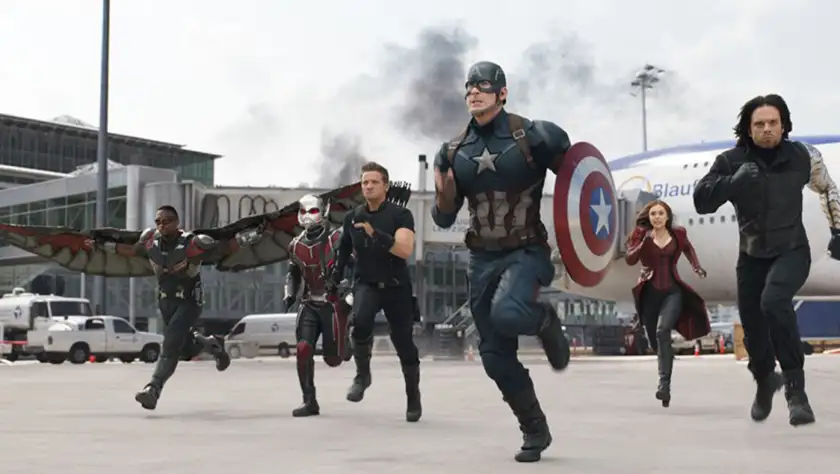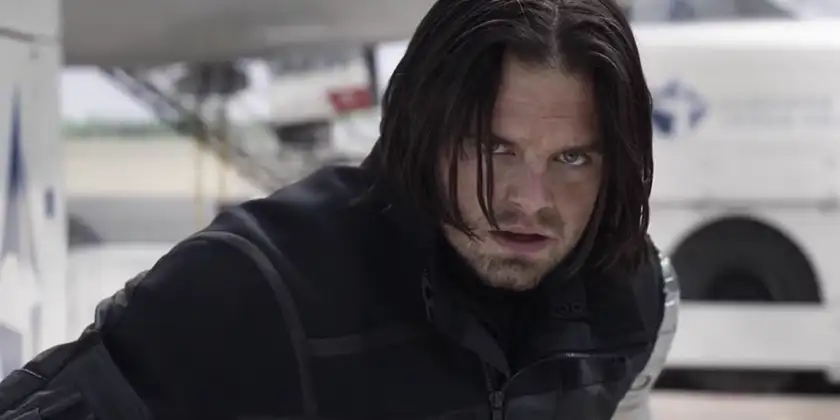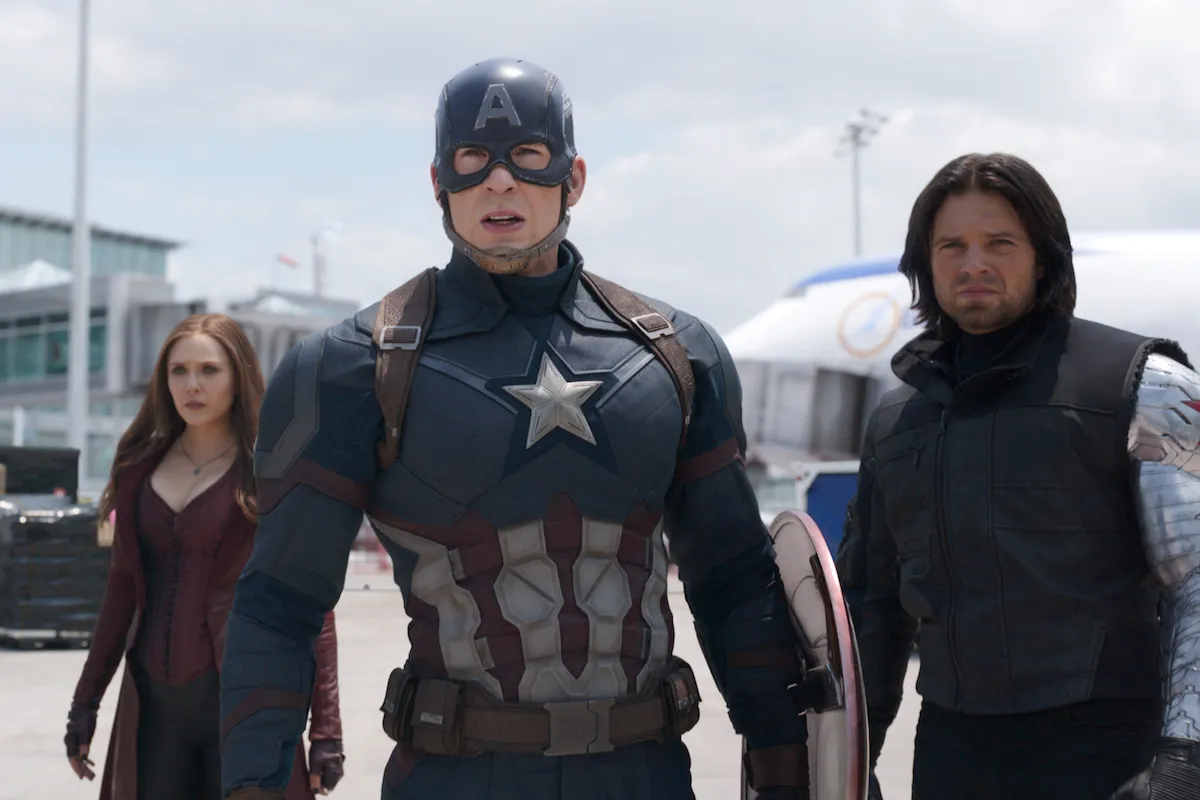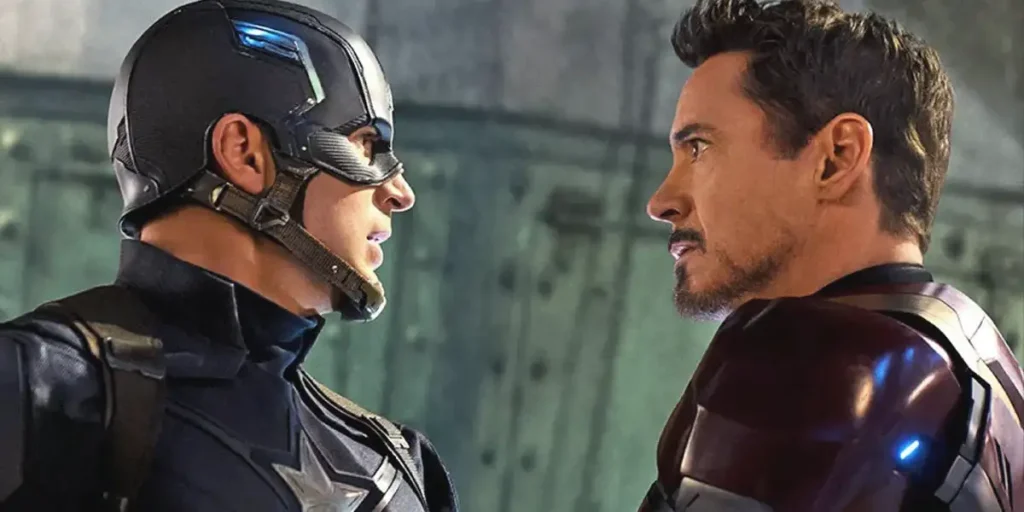Nine years after its release, what stands the test of time with Captain America: Civil War is not just its superhero action, but also its layered character work.
It’s been nine years since this movie was released. Do you feel old yet?
Directed by Anthony and Joe Russo, Captain America: Civil War is the 13th film in the Marvel Cinematic Universe and the third film in the Captain America film series. It follows Steve Rogers/Captain America (Chris Evans, Knives Out) and multiple other superheroes of the Avengers as they face the consequences of their previous outings’ multiple collateral damages. Unfortunately, opinions split within the team on how to respond, with the main opponent to Rogers being Tony Stark/Iron Man (Robert Downey Jr., Oppenheimer). And as it is often the case with superhero stories, an argument isn’t something that’s simply resolved over dinner and coffee.
With how much the MCU has fallen out of public favor the past couple years (for rather justifiable reasons), the pressure is currently on the upcoming Captain America: Brave New World to hopefully kickstart a turnaround for the franchise. This is especially because, of the MCU films, the Captain America film series has often been touted as the most consistently entertaining and engaging. And Captain America: Civil War set some pretty high standards for its successors to follow.
Today, let’s go back to simpler times, times when the MCU was arguably at the height of its popularity and where the word “pandemic” was something that was only discussed in vocabulary textbooks. We will examine this movie and see why it continued the MCU’s winning streak back then, and whether there were any flaws we may have overlooked while we were cheering for Captain America to bash in Iron Man’s helmet. This is why Captain America: Civil War holds up even after nine years.
Captain America: Civil War Plays with Grey Areas

One of the central conflicts and the reason why the heroes choose sides is, again, the consequences of the collateral damage from their battles with villains. More specifically, the film introduces the Sokovia Accords, which states that the Avengers will now operate under direct orders from the UN rather than at their own discretion. Thus the main theme of the movie reveals itself: is it worth sacrificing freedom in order to not lose control?
It is a hard question to answer, and that holds true for the heroes as well. Each takes different sides for their own reasons. Captain America has lived through times of dictators, and experienced just how quickly control can turn oppressive. To him, even though they might not be perfect, to place their decisions in hands of world powers that could very easily pursue their own interests isn’t safe. On the opposite end of that debate is Iron Man. He feels responsible for collateral damage due to his past as a weapons manufacturer, and insists that unchecked freedom can lead to disastrous consequences whether they intended to or not.
What I appreciate about the film is that it never really lets one side take the moral high ground. The film follows Captain America, but Iron Man’s side aren’t villains here either. Each side has a strong point, and each side has their fallacies as well. These morally grey themes are what gives the film more depth, and allows the audience to come to their own decisions as it doesn’t peg one opinion as the answer.
This can even lead to viewing experiences changing upon rewatches or with multiple people. We all have our differing views on just how much personal freedom should be sacrificed for the sake of stability. Sometimes those views change over time, and as they do, the way we see the movie might change as well. It treats the audience as adults capable of making their own decisions instead of opting for hand holding, and its maturity is impressive.
Superb Action Balanced by Story
Then again, when you turn on a film called Captain America: Civil War, a complex moral debate probably isn’t what you initially looked forward to. This is still a superhero movie, and the primary reason for watching those is to see cool people in cool costumes punch people in very cool ways. Thankfully, this film still holds up very strongly in those regards.
The film boasts twelve heroes total in their lineup for the titular Civil War, each with different powers. Thankfully, the film can rely on past movies to get audiences familiar with individual movesets, so it can focus more on the choreography. When you have superheroes that can fly, have an indestructible shield, shoot webs, have a metal arm, or change sizes, it sets up so many different scenarios for those powers to clash in creative ways.
The action also avoids the trap of power levels. Some of these heroes are certainly on a higher level of power than others, and at first glance one may look at Iron Man and think “can’t he just nuke everyone and win?” But here’s where the story ties into the action; since these are still heroes and were once comrades; none of them truly want to kill each other. Therefore, their methods of fighting are as non-lethal as possible. This balances out fights to a point where it’s believable but still entertaining.
Adding to the already superb action is how well this film holds up effects-wise as well. I don’t know whether the VFX artists or stunt choreographers were as overworked back then, but their blood, sweat, and tears certainly paid off as every hit is clean and characters feel present even with CG. The choreography especially deserves praise, as characters like Black Panther (Chadwick Boseman) actually feel nimbler and more skilled in this film than their own solo movies.
Though if I may nitpick for a moment, there is a part of me that feels the airport sequence might be too fun. The airport sequence is high energy and also funny, providing some of the biggest laughs in the film. It is also in a movie about consequences, moral debates, and friends growing apart. The film prior to the airport has been setting up all those serious elements, but when it finally comes to fruit, the payoff is of a different tone from what the story led us to expect. Thus, even while I find myself enjoying the airport fight on an extrinsic level, a part of it still feels incongruous to the overall picture.
Thankfully, this scene is the only really glaring instance of this, as the film then proceeds back into a much more serious climax with a final battle of Iron Man vs Captain America and Bucky Barnes, the Winter Soldier (Sebastian Stan, Fresh). And this is where the true strength of the film comes through, that being its characters.
Character Work that Stands Tall

When you are having heroes fight villains, the motivation is often easier to set up. After all, it’s only natural a hero wouldn’t stand and watch as a cackling bad guy tries to blow up innocent civilians. When heroes are fighting heroes, the motivation is much harder to make believable, as then it comes down to their actual personalities to drive them to that conflict.
I already mentioned how Captain America and Iron Man differ in their perspectives towards the Sokovia Accords, but the climax, and by extent the movie, goes beyond that. The final fight happens because as Iron Man tracks down Captain America and Bucky Barnes/Winter Soldier (Sebastian Stan, Fresh), he discovers the Winter Soldier is the one that assassinated his parents all those years ago. In fury, he tries to kill Bucky, while Steve tries to protect him. This moment is purely character driven and becomes all the more tragic as you dive deeper.
Cap has always been a man out of time. He may have made good friends in the present day with the Avengers, and the public look up to him, but they weren’t there back in the 1940s which was the time period Steve originally lived in before he was frozen in ice until the present. And even most of the comrades in the army he fought in WWII with knew him as Captain America, the super soldier.
Thus, Bucky is now the only person alive who knew him as Steve Rogers before he became Captain America and ended up in modern day. He is the only true link Cap has to who he originally was. That is why he cannot afford to lose Bucky no matter what, and why he values that even over his friendship with Iron Man. It’s a choice based purely on his emotions. It can even be seen as selfish, which only makes the weight of it heavier, as it couldn’t have been easy for a normally selfless hero like Cap to choose to be selfish that one time.
On the opposite side is Tony. He may not show it directly, but he is a man who truly cares about people. He loves his parents even with his rocky relationship with his father. As for Cap, they may have clashed opinions in the past a couple times, but in the end, he trusted Steve as a friend. Considering Tony’s ego and drive to shine, the fact that he acknowledges Steve as the leader of the Avengers shows how much he respects Cap deep down.
That is why the betrayal hits him so hard. Notice how he only truly instigates the final fight after he confirms that Cap knew that his parents were assassinated. This battle is rooted in character, and it comes from both making convincing decisions, to the point where you can see no other way this could have ended. That’s what drives the tragedy of the climax, and why the film’s ending leaves a deep emotional scar on everyone.
Other characters such as the rest of team Cap – Winter Soldier, Falcon (Anthony Mackie), Scarlet Witch (Elizabeth Olsen), Ant-Man (Paul Rudd), Hawkeye (Jeremy Renner) – or team Iron Man – Black Widow (Scarlett Johansson), Vision (Paul Bettany), War Machine (Don Cheadle), Spider-Man (Tom Holland), Black Panther – are there as side characters or action fodder. But that is not necessarily a negative. Many of them still work as independent characters and provide good chemistry with and against their fellow heroes.
There’s even one case where the film manages to introduce a new character in a way that still feels fulfilling and organic, that being Black Panther. Captain America: Civil War is this character’s MCU debut, and yet despite having to compete for screentime with others, he manages to have a mini arc throughout the film as he loses his father to a bombing seemingly by the Winter Soldier and joins the Civil War in vengeance. In the end, he learns to let go of those emotions, something that even ties back to the themes of the climax about emotions driving you to conflict.
The only blemish I can find in the character work is Spider-Man. Even though I had fun with his performance, I have to admit that he’s the most tacked on out of all the heroes in this Civil War. He had no prior buildup in any of the MCU movies, he is mainly here to look cool and to assure the audience “we have Spider-Man in the MCU now!” I realize the reason for this is more external, as the MCU didn’t possess the film rights to Spider-Man prior to this movie. However, I don’t see any reason why they needed to introduce him in this film specifically. What we got of him in the film was still highly enjoyable so it won’t wake me in the middle of the night. It just makes me shift in my sleep a little.
Captain America: Civil War Still Holds Up

Despite some flaws, I still put the film as one of the major highlights of the MCU. The things it does well far outshine its downsides, and it is a showcase that comic book movies can not only be fun and entertaining, but also thought-provoking. I had little issue going back to this one, which I think is testament to how much this movie holds up even after nine years. I can only hope that Captain America: Brave New World follows in its legacy as a quality MCU title, and that this sentence ages like fine wine rather than milk.
Captain America: Brave New World will be released globally in theaters on February 14, 2025.

